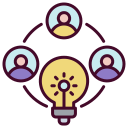Cutting-Edge Techniques in Remote Collaboration Efficiency
The evolving digital landscape has propelled the need for more efficient and effective methods of remote collaboration. Teams spread across different locations and time zones must harness a variety of tools, strategies, and mindsets to stay seamlessly connected and productive. This guide explores the latest advancements and thought leadership driving remote collaboration, offering actionable insights for organizations determined to lead in the remote work era.
Intelligent Communication Tools for Remote Teams
AI-Powered Meeting Assistants
Recent advancements in artificial intelligence have made meeting assistants more accessible and powerful than ever. These tools can automatically transcribe conversations, highlight key action items, and summarize lengthy meetings into digestible points. By automating note-taking and follow-up reminders, teams can remain focused on the discussion rather than administrative details. Further, AI-driven insights into meeting participation and engagement help team leaders identify opportunities for increased involvement and cross-functional alignment, ultimately leading to higher-quality collaboration outcomes.
Real-Time Language Translation
Globalization has brought together teams made up of speakers of different languages, and real-time translation technologies are bridging those gaps more effectively than ever. Integrated directly into chat, email, and video platforms, these solutions allow for seamless and natural conversations without the friction of language barriers. As a result, organizations benefit from diverse perspectives, while employees feel more included and empowered to contribute in their native tongue or a language they feel most comfortable using. This inclusivity minimizes miscommunication and maximizes collective knowledge sharing.
Contextual Messaging Platforms
Contextual messaging platforms are reshaping digital communication by embedding relevant project files, historical context, and threaded discussions directly into chat windows. Rather than sifting through archives or switching applications, users access everything needed for decision-making and collaboration within a single, intuitive interface. These platforms facilitate faster responses, fewer misunderstandings, and more productive exchanges, allowing remote teams to stay agile and deeply connected to the work at hand.
Advanced Workflow Automation and Integration
Process automation tools have rapidly evolved in sophistication, enabling teams to automate entire workflows from initiation to completion. These solutions handle repetitive administrative tasks such as onboarding, approvals, status updates, and deadline notifications with minimal human intervention. Resulting time savings are substantial, allowing staff to redirect energy toward complex problem-solving and innovation. Moreover, automation reduces errors and brings consistency to remote team operations, no matter the scale.
Modern remote work tools increasingly offer deep integrations with each other, reducing silos and making data accessible wherever it’s needed. Whether syncing tasks between project management platforms or linking communication tools with documentation repositories, seamless integrations eliminate redundant data entry and lower the risk of miscommunication. This interoperability leads to a unified workspace, where distributed teams can move seamlessly between applications without losing context or momentum.
Leveraging machine learning and analytics, some platforms now deliver personalized workflow recommendations based on observed habits and organizational goals. From suggesting optimal meeting times to flagging bottlenecks in project pipelines, these solutions adapt to evolving team dynamics and workloads. Not only does this result in a tailored experience for each team member, but it also supports continuous improvement, helping remote teams achieve peak efficiency over time.

Synchronous and Asynchronous Collaboration Strategies
Dynamic Scheduling and Time Zone Adaptation
Innovative scheduling tools now factor in personal working hours, local holidays, and time zone differences when proposing meeting times. This dynamic approach ensures that meetings are inclusive and convenient, minimizing late-night or early-morning disruptions for international members. By automating the search for optimal times and suggesting alternatives, these solutions respect personal boundaries while keeping teams aligned, enhancing both participation levels and overall satisfaction.

